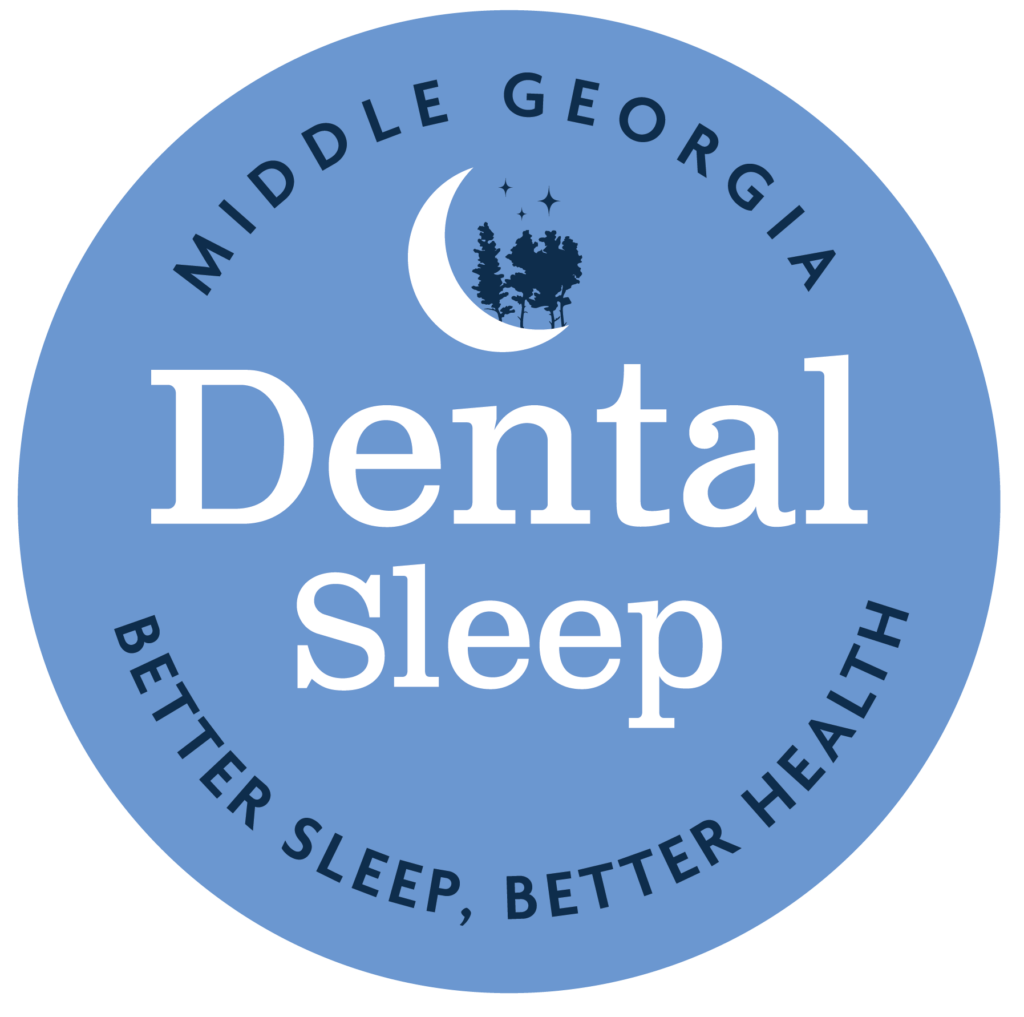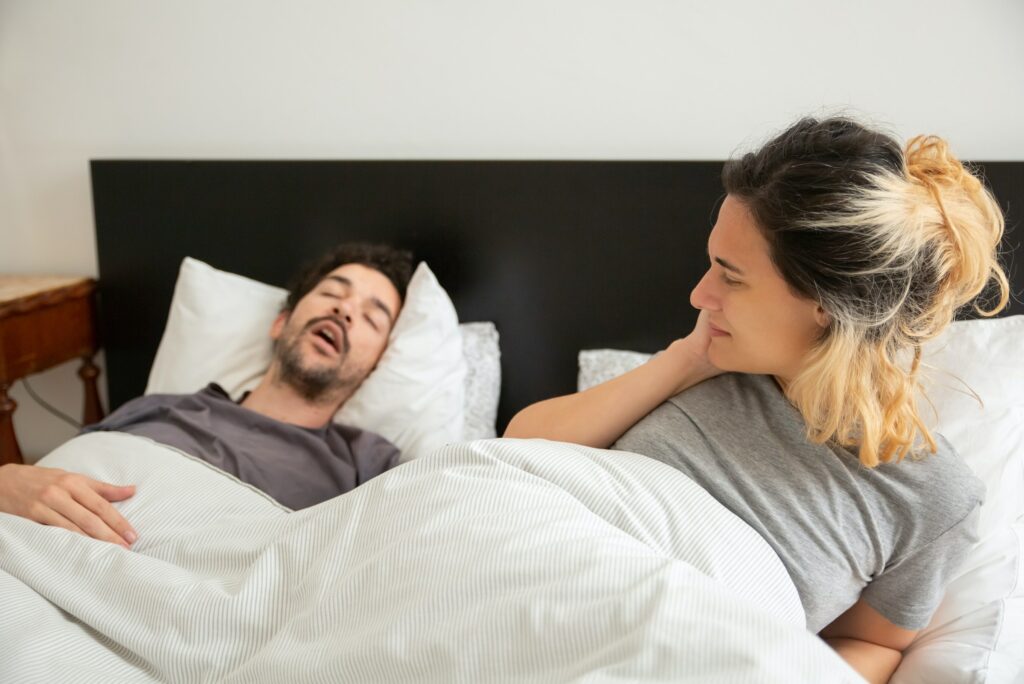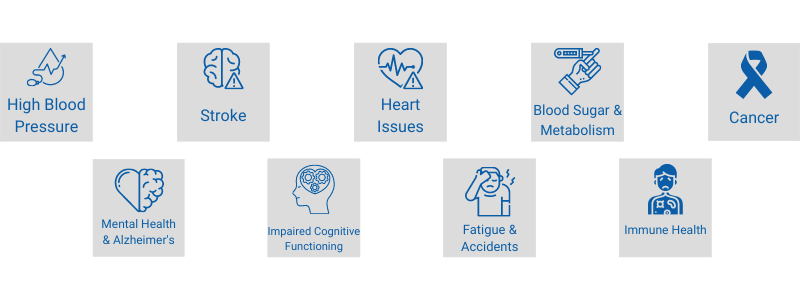- 2953 Vineville Ave, Macon, GA 31204
OSA is
treatable
Middle Georgia Dental Sleep takes great pride in serving our patients, offering exceptional dental sleep solutions with a commitment to their overall well-being and quality of life.

Oral Appliance Therapy
Oral appliance therapy is an effective treatment option for snoring and obstructive sleep apnea (OSA). An oral appliance fits over your teeth like an orthodontic retainer while you sleep and supports your jaw in a forward position to keep your airway open. A custom-fit oral appliance can improve your sleep, restore your alertness, and revitalize your health.
If oral appliance therapy is right for you, we will fabricate a custom-fit oral appliance. Additionally, we will provide ongoing treatment to make sure your appliance remains comfortable and effective. If you haven’t yet been officially diagnosed we can help with that too! Give us a call to see how we can help.
Advantages of Oral Appliance Therapy
Oral appliance therapy is an effective, non-invasive treatment that fits easily into your lifestyle. Patients like oral appliance therapy because it is:
- Easy to wear
- Quiet
- Portable
- Convenient
- Comfortable
- Easy to care for
Living with Oral Appliance Therapy
Treating your snoring or obstructive sleep apnea can make you feel like a new person. You will find that your quality of life can improve dramatically when you remain committed to your treatment and use it nightly. OAT can help you sleep better, have more energy, and feel sharper throughout the day. You may find that your bed partner begins to sleep better, too!
Treating sleep apnea promotes a healthier heart, body, and mind. With your qualified dentist’s help, you can improve your sleep and your health!
Effective OSA Treatment
Oral appliances effectively treat obstructive sleep apnea (OSA) and are recommended for patients diagnosed with OSA who prefer a therapy other than CPAP or are intolerant of CPAP. Oral appliances should be adjustable and customizable and provided by a qualified dentist who has training in treating obstructive sleep apnea.
Snoring
Obstructive sleep apnea does not just affect your sleep; it is also associated with some pretty scary things like: high blood pressure, stroke, heart disease, cancer, diabetes, depression, and Impaired Cognitive Functioning.
Snoring is more than just a sound that occurs during sleep. It is a medical disease that should be diagnosed by a physician and then treated. Snoring has been associated with sleep deprivation, daytime drowsiness, irritability, lack of focus and decreased libido. Loud snoring has been associated with increased risk of heart attacks and strokes.
Learn More
Symptoms
Symptoms of obstructive sleep apnea include loud or frequent snoring or silent pauses in breathing and choking or gasping sounds.
Other common symptoms include:
• Waking in the morning feeling unrefreshed
• Being tired during the day
• Morning headaches
• Waking up frequently at night to go to the bathroom
• Difficulty concentrating or remembering things
Snoring and Snore-Reducing Devices
Middle Georgia Dental Sleep takes pride in fabricating custom, comfortable devices tailored to each patient’s individual needs.
If you’re on this page, someone has probably told you that you snore—or you have a partner or family member that does. You may be wondering what your next step is. You may have seen or heard the commercials or advertisements for snore-reducing devices, often called anti-snore mouth guards or mouthpieces. These devices are designed to reduce snoring by holding the tongue in place or pushing the jaw forward.
What is snoring?
Snoring is more than just a sound that occurs during sleep. It is a medical disease that should be diagnosed by a physician and then treated. Snoring has been associated with sleep deprivation, daytime drowsiness, irritability, lack of focus and decreased libido. Loud snoring has been associated with increased risk of heart attacks and strokes.
How is snoring diagnosed?
If you’re not sure if you snore, you can contact your physician or give us a call to get you started. If you already know that you’re a snorer, you should inform your doctor that you snore and of any other issues related to your sleep (for example, if anyone has ever told you that you stop breathing, gasp or make choking sounds while sleeping).
What other options are there to help my snoring?
Losing weight, avoiding alcohol and smoking, and sleeping on your side can help to reduce snoring in some cases. But sometimes these adjustments aren’t enough, and at times, they’re not the cause of snoring to begin with. In these cases, your doctor can prescribe a custom-fit oral appliance that can be made by a qualified dentist. For more information about oral appliances, click here.

Obstructive Sleep Apnea & Snoring
Nearly 54 million adults in the U.S. have obstructive sleep apnea (OSA), a chronic condition that occurs when your muscles relax during sleep, allowing soft tissue to collapse and block the airway. This can cause you to stop breathing hundreds of times per night for anywhere from a few seconds to more than a minute at a time. These breathing pauses are followed by brief awakenings that disturb your sleep and can result in excessive daytime sleepiness.
Symptoms of OSA
Symptoms of obstructive sleep apnea include loud or frequent snoring or silent pauses in breathing and choking or gasping sounds. Other common symptoms include:
- Waking in the morning feeling unrefreshed
- Being tired during the day
- Morning headaches
- Waking up frequently at night to go to the bathroom
- Difficulty concentrating or remembering things
How is OSA Diagnosed?
Obstructive sleep apnea must be diagnosed by a doctor. You can ask your primary care doctor for a sleep evaluation or you may contact our office directly and we can get you set up with a sleep specialist for diagnosis. This may involve either an overnight sleep test at a sleep center or a home sleep apnea test (HSAT). A sleep specialist will interpret the data from your sleep test. The information from the evaluation and the sleep test results will be used to determine if you have OSA and appropriate treatment solutions.
How is OSA Treated?
Once you have been diagnosed with OSA, your doctor will discuss treatment options with you. These options often include continuous positive airway pressure (CPAP) therapy, oral appliance therapy (OAT) or surgery.

Oral appliance therapy is an effective treatment option for snoring and OSA. You can learn more about OAT here.
If you and your doctor decide that oral appliance therapy is the best treatment option for you, your doctor will write you a prescription for a custom-made oral appliance. You will also receive a referral to a qualified dentist who can provide oral appliance therapy. Learn more about a patient visit with a qualified sleep dentist here.
The Importance of Treating OSA
When selecting a treatment option, it is important that you pick an option you will use. When OSA is left untreated, it often causes excessive daytime sleepiness and fatigue, as well as morning headaches and memory loss. Sleep apnea also is a threat to the safety of you and others, as it increases your risk of drowsy driving and workplace accidents. Untreated sleep apnea has been linked to serious health problems such as:
Snoring: Why it Should Be Taken Seriously
Snoring is more than just a sound that occurs during sleep. It is a medical disease that should be diagnosed by a doctor and then treated. Snoring has been associated with sleep deprivation, daytime drowsiness, irritability, lack of focus and decreased libido. Loud snoring has been associated with increased risk of heart attacks and strokes.
It is estimated that about 57% of men, and 40% of women in the United States snore. It is not uncommon for people to ignore this phenomenon; however, snoring could be a huge indicator of OSA. Much like OSA, if you snore, be sure to mention this to your physician.
If you are not currently being treated by a physician and suspect you have OSA, we can refer you to a sleep specialist for a sleep study and diagnosis.
